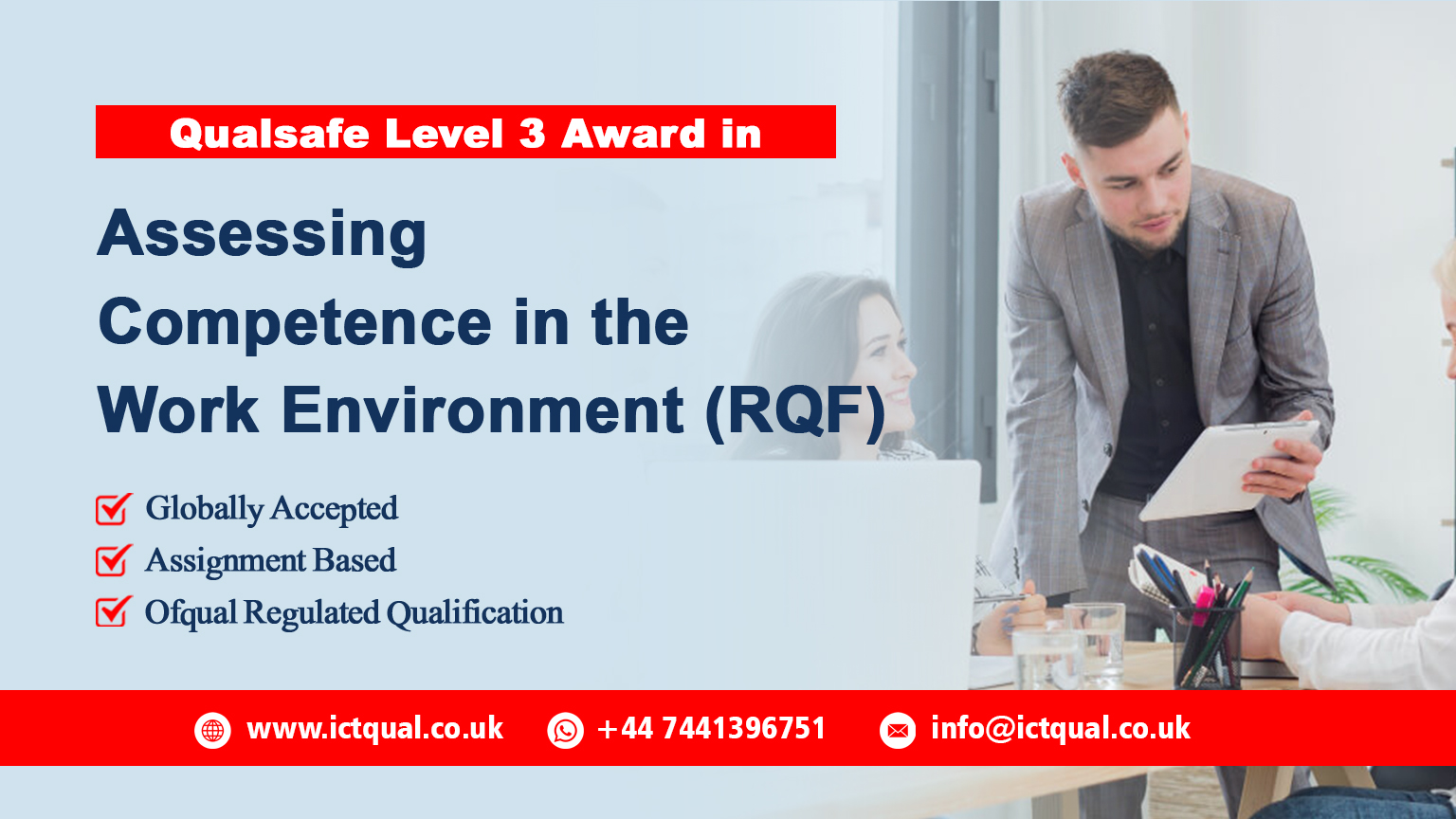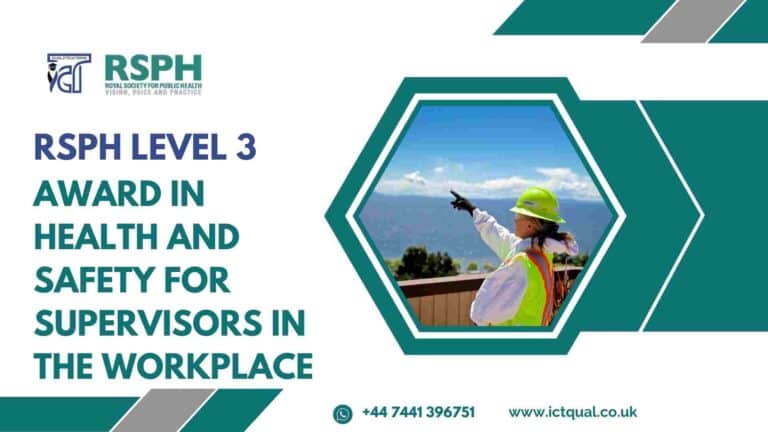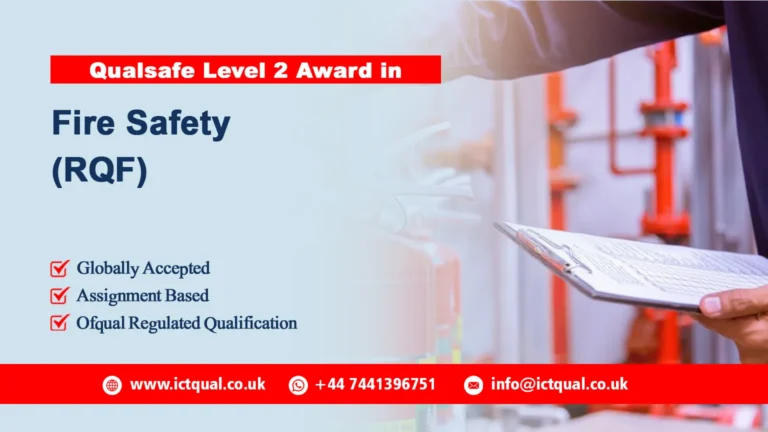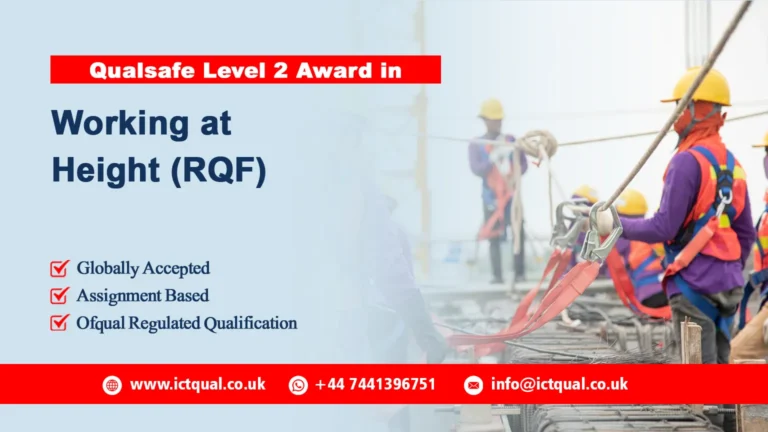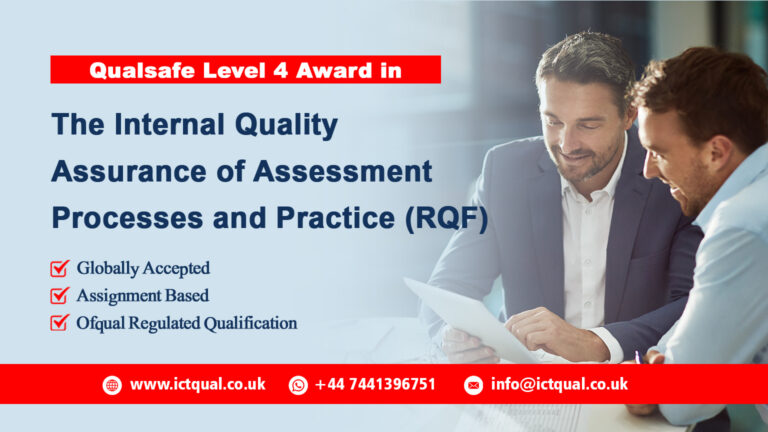The Qualsafe Level 3 Award in Assessing Competence in the Work Environment (RQF) is an essential qualification for individuals seeking to develop their skills in workplace assessment. Designed for assessors operating in real-world environments, this course provides the knowledge and expertise needed to effectively evaluate the performance of learners in their jobs. Whether you’re an experienced assessor looking to formalize your skills or a professional in a training role, this qualification enhances your ability to assess competence in practical settings.
Throughout the course, participants will learn how to plan, conduct, and evaluate assessments, ensuring that they meet industry standards and best practices. Key topics include understanding assessment methodologies, providing constructive feedback, and maintaining compliance with organizational and regulatory requirements. The Level 3 Award is particularly relevant for those working in industries such as healthcare, construction, and manufacturing, where practical competency is critical for success.
Recognized by employers and aligned with the Regulated Qualifications Framework (RQF), the Qualsafe Level 3 Award in Assessing Competence in the Work Environment equips learners with the tools to support the development of skills in the workplace. By completing this qualification, you will gain the confidence and credibility needed to assess learner competence effectively, helping individuals achieve their professional goals while contributing to the overall success of your organization. Enroll today to take the next step in your career as a workplace assessor.
The Qualsafe Level 3 Award in Assessing Competence in the Work Environment (RQF) is an essential qualification for individuals seeking to develop their skills in workplace assessment. Designed for assessors operating in real-world environments, this course provides the knowledge and expertise needed to effectively evaluate the performance of learners in their jobs. Whether you’re an experienced assessor looking to formalize your skills or a professional in a training role, this qualification enhances your ability to assess competence in practical settings.
Throughout the course, participants will learn how to plan, conduct, and evaluate assessments, ensuring that they meet industry standards and best practices. Key topics include understanding assessment methodologies, providing constructive feedback, and maintaining compliance with organizational and regulatory requirements. The Level 3 Award is particularly relevant for those working in industries such as healthcare, construction, and manufacturing, where practical competency is critical for success.
The Qualsafe Level 3 Award in Assessing Competence in the Work Environment (RQF) has 2 units that Trainee
assessors are required to complete in order to achieve the qualification. Qualification unit 1 has 24 GLH, Credit value of 3, Qualification unit 2 has 30 GLH and Credit value of 6.
Qualification Unit 1
| Sr# | Unit Title |
|---|---|
| 1 | Understand the principles and requirements of assessment |
| 2 | Understand different types of assessment method |
| 3 | Understand how to plan assessment |
| 4 | Understand how to involve learners and others in assessment |
| 5 | Understand how to make assessment decisions |
| 6 | Understand quality assurance of the assessment process |
| 7 | Understand how to manage information relating to assessment |
| 8 | Understand the legal and good practice requirements in relation to assessment |
Qualification Unit 2
| Sr# | Unit Title |
|---|---|
| 1 | Be able to plan the assessment of occupational competence |
| 2 | Be able to make assessment decisions about occupational competence |
| 3 | Be able to provide required information following the assessment of occupational competence |
| 4 | Be able to maintain legal and good practice requirements when assessing occupational competence |
This course is designed for:
Workplace Assessors: Professionals who are responsible for evaluating the competencies of learners in real-world job settings, ensuring that individuals meet the necessary skills and performance standards.
Trainers and Instructors: Those who deliver training in the workplace and wish to formalize their assessment skills, enabling them to assess and evaluate learners effectively during practical training sessions.
Managers and Supervisors: Individuals in management roles who oversee teams and wish to develop their ability to assess employee performance and competence within their respective industries.
Vocational Trainers: Trainers working in vocational education and training programs who need to assess the practical skills of learners in specific trades or professions.
HR Professionals: Human resources personnel responsible for training and development who want to expand their capabilities in assessing staff competencies and supporting employee growth.
Apprenticeship Assessors: Assessors working within apprenticeship frameworks who need to evaluate the practical skills of apprentices in the workplace to ensure they meet qualification standards.
Compliance and Quality Assurance Officers: Professionals responsible for maintaining standards within their organizations, looking to enhance their skills in assessing workplace competence and ensuring compliance with industry regulations.
Here are the outcomes for each of the listed study unit:
Understand Assessment Principles: Gain a comprehensive understanding of the fundamental principles and practices of assessing competence in the workplace, including relevant legislation and regulatory frameworks.
Plan and Prepare Assessments: Develop the skills to effectively plan and prepare for assessments, including determining assessment methods and criteria that align with organizational and industry standards.
Conduct Assessments in Real Work Environments: Learn how to carry out assessments in real-world job settings, ensuring that evaluations are valid, reliable, and fair.
Evaluate Learner Performance: Acquire the ability to assess the performance of learners accurately, using various assessment techniques to measure competence against established standards.
Provide Constructive Feedback: Understand how to deliver meaningful, constructive feedback to learners, helping them identify areas for improvement and supporting their development.
Maintain Assessment Records: Learn how to document assessment activities effectively, ensuring that accurate records are kept to demonstrate compliance with organizational and regulatory requirements.
Reflect on and Improve Assessment Practices: Develop the ability to evaluate your own assessment practices and identify opportunities for improvement, contributing to continuous professional development.
Understand the Role of the Assessor: Recognize the importance of the assessor’s role in supporting learner development and maintaining standards of competence within the workplace.

